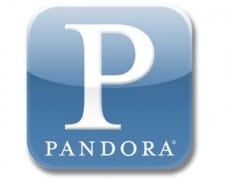 Pandora, which is also lobbying Congress for lower royalties on recordings, asked a federal court (11/5) in New York to set “reasonable” license fees from ASCAP through 2015. Pandora, with 150 million registered US users, wants a blanket licensing fee that would cover all songs represented by the 435,000-member group. In the suit, Pandora says the current fees prevent profitability. Indeed, the company has yet to show a profit, and so far ad revenues aren’t making up the difference. ASCAP and Pandora reached an “experimental” fee agreement in 2005 that lasted until 2010.
Pandora, which is also lobbying Congress for lower royalties on recordings, asked a federal court (11/5) in New York to set “reasonable” license fees from ASCAP through 2015. Pandora, with 150 million registered US users, wants a blanket licensing fee that would cover all songs represented by the 435,000-member group. In the suit, Pandora says the current fees prevent profitability. Indeed, the company has yet to show a profit, and so far ad revenues aren’t making up the difference. ASCAP and Pandora reached an “experimental” fee agreement in 2005 that lasted until 2010.
This year ASCAP negotiated a fee agreement with the Radio Music Licensing Committee (RMLC), which represents broadcasters such as CC Media and Cumulus. They will pay 1.7% of gross revenue minus deductions based on ad commissions. Pandora says in its suit that ASCAP refused to offer it the same terms.
Meanwhile, “The license rates and other material terms of the 2005 license agreement were presented to Pandora by ASCAP as being effectively non-negotiable,” Pandora said in the suit. Pandora says the “experimental license agreement” it reached in 2005 for Internet sites and services “was ill-suited and not reasonable.”
Pandora and ASCAP were unable agree on licensing fees after more than a year of talks, Pandora said. The U.S. District Court in New York has jurisdiction over rate-setting if the parties can’t come to terms, reported Bloomberg.
Pandora also claims that it is entitled to lower rates because some large music publishers have announced they are withdrawing new media rights from ASCAP and negotiating licensing fees directly with web radio services.
Lawmakers in September introduced the Internet Radio Fairness Act of 2012, which if enacted would require music royalty rates for web broadcasters to be comparable to what Sirius XM and cable companies pay.
“Royalty rates for different formats of digital radio are astonishingly unequal,” Tim Westergren, Pandora’s co-founder, said in a statement. “Last year Pandora paid roughly 50% of its total revenue in royalties, more than six times the percentage paid by SiriusXM.”
RBR-TVBR observation: Webcasters like Pandora support the Internet Radio Fairness Act, but the music industry is firmly against it. If that becomes law, the playing field will be leveled a bit. But for ASCAP, it’s going to be hard to get a court to step in and dictate how private entities should negotiate in the marketplace. “Willing buyer willing seller” still underpins much of the business when it comes to licensing deals.





